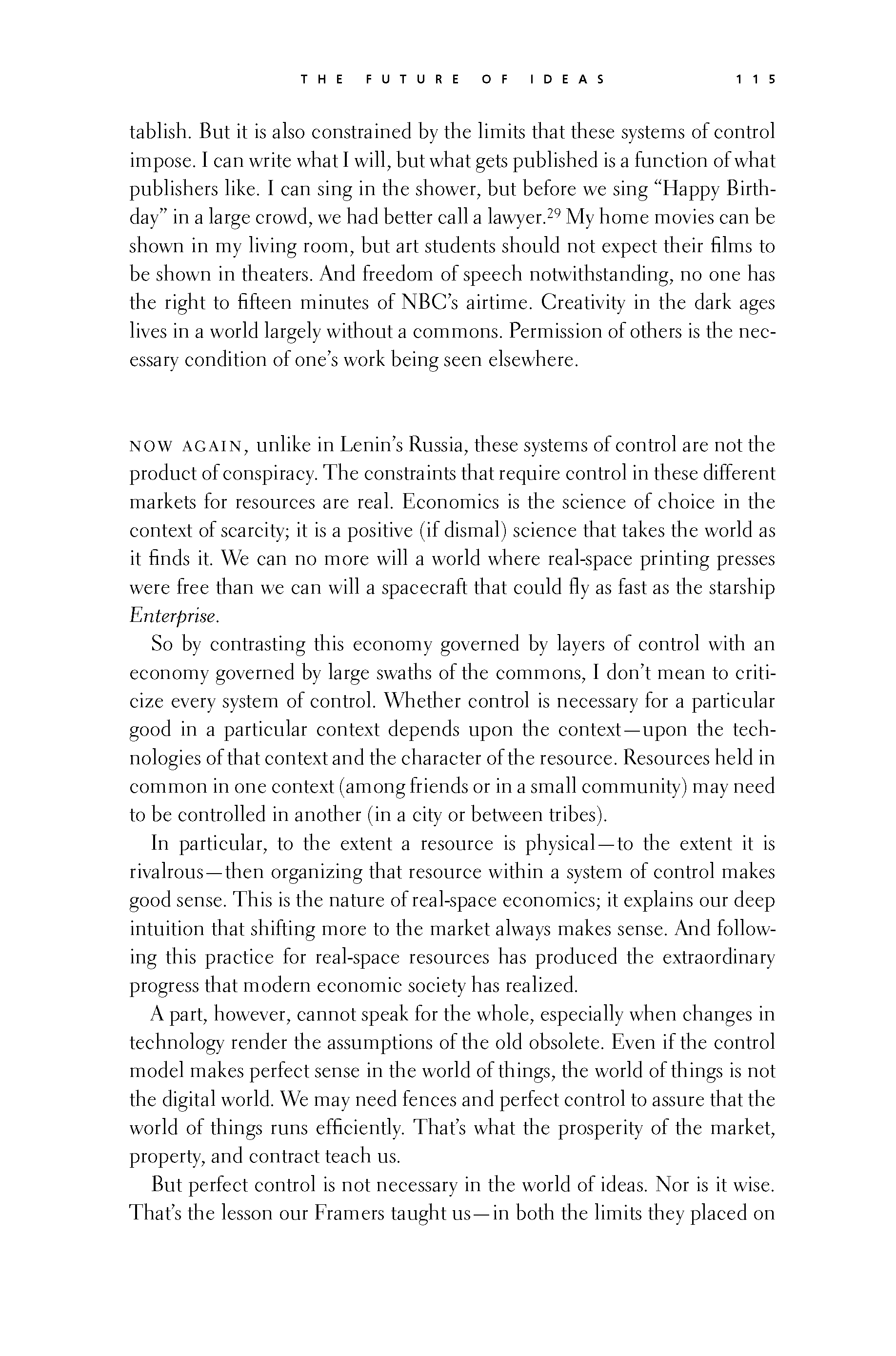 p114 _
-chap- _
toc-1 _
p115w _
toc-2 _
+chap+ _
p116
p114 _
-chap- _
toc-1 _
p115w _
toc-2 _
+chap+ _
p116
tablish. But it is also constrained by the limits that these systems of control
impose. I can write what I will, but what gets published is a function of what
publishers like. I can sing in the shower, but before we sing "Happy Birth-
day" in a large crowd, we had better call a lawyer.[7-29] My home movies can be
shown in my living room, but art students should not expect their films to
be shown in theaters. And freedom of speech notwithstanding, no one has
the right to fifteen minutes of NBC's airtime. Creativity in the dark ages
lives in a world largely without a commons. Permission of others is the nec-
essary condition of one's work being seen elsewhere.
///\\\
Now again, unlike in Lenin's Russia, these systems of control are not the
product of conspiracy. The constraints that require control in these different
markets for resources are real. Economics is the science of choice in the
context of scarcity; it is a positive (if dismal) science that takes the world as
it finds it. We can no more will a world where real-space printing presses
were free than we can will a spacecraft that could fly as fast as the _Starship_
_Enterprise._
So by contrasting this economy governed by layers of control with an
economy governed by large swaths of the commons, I don't mean to criti-
cize every system of control. Whether control is necessary for a particular
good in a particular context depends upon the context -- upon the tech-
nologies of that context and the character of the resource. Resources held in
common in one context (among friends or in a small community) may need
to be controlled in another (in a city or between tribes).
In particular, to the extent a resource is physical -- to the extent it is
rivalrous -- then organizing that resource within a system of control makes
good sense. This is the nature of real-space economics; it explains our deep
intuition that shifting more to the market always makes sense. And follow-
ing this practice for real-space resources has produced the extraordinary
progress that modern economic society has realized.
A part, however, cannot speak for the whole, especially when changes in
technology render the assumptions of the old obsolete. Even if the control
model makes perfect sense in the world of things, the world of things is not
the digital world. We may need fences and perfect control to assure that the
world of things runs efficiently. That's what the prosperity of the market,
property, and contract teach us.
But perfect control is not necessary in the world of ideas. Nor is it wise.
That's the lesson our Framers taught us -- in both the limits they placed on
[[115]]
p114 _
-chap- _
toc-1 _
p115w _
toc-2 _
+chap+ _
p116